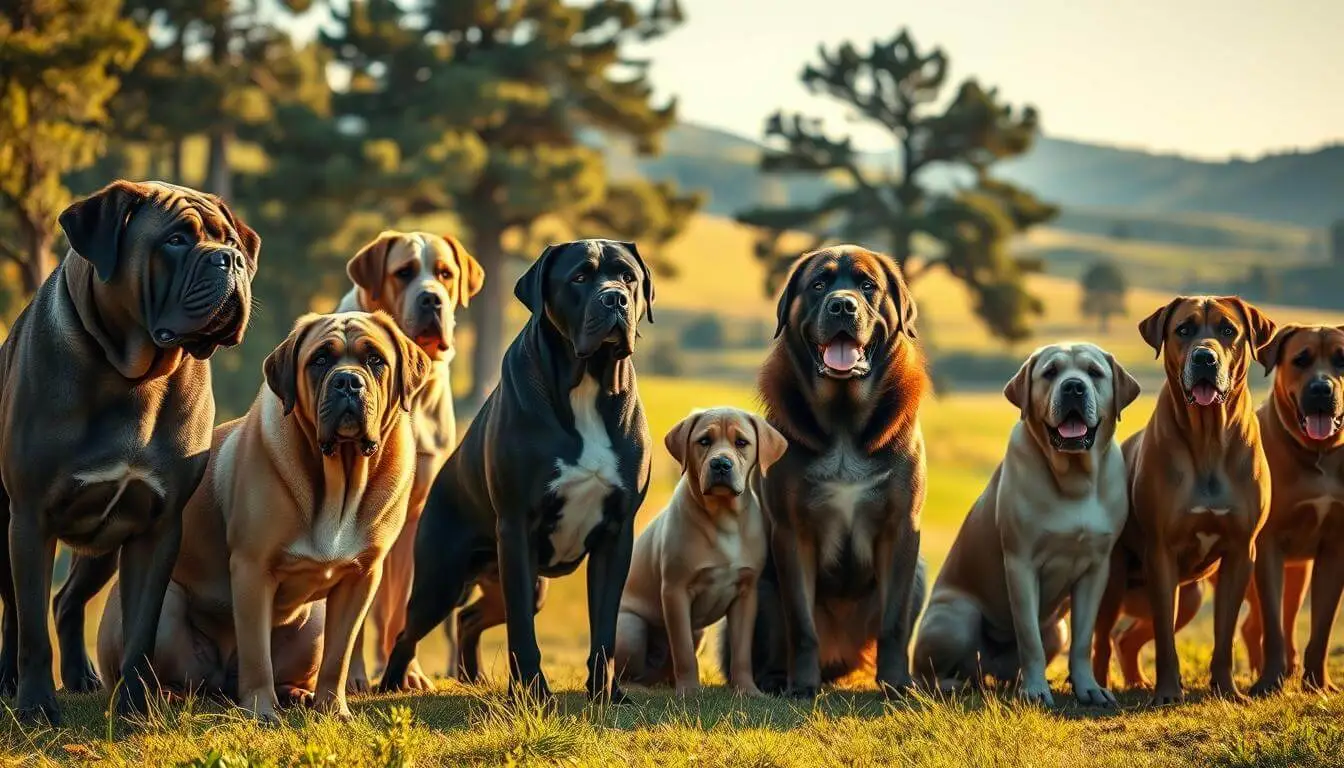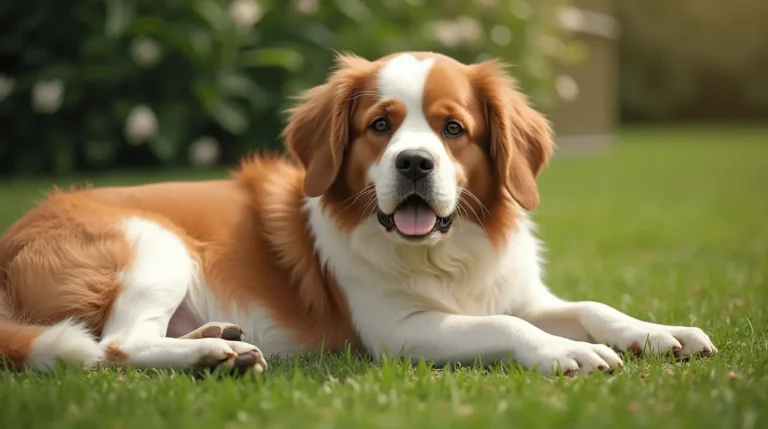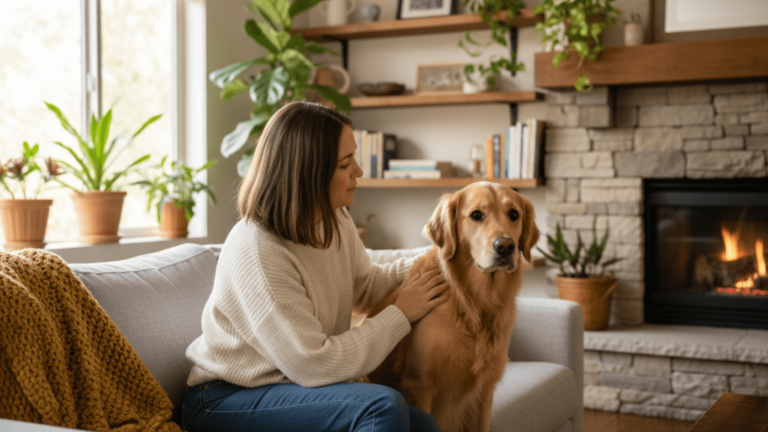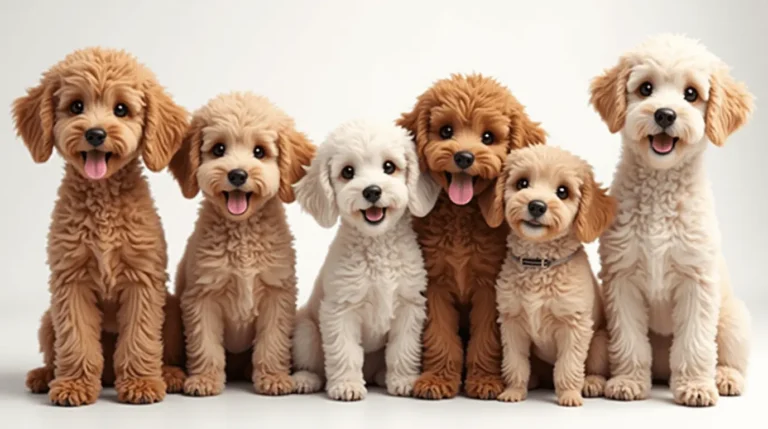The Most Popular Large Dog Breeds You Need to Know
Have you ever wondered why large dog breeds are so loved in the United States? They bring more than size to the table—they become part of the family. These big dogs weigh 50 pounds or more, adding joy, strength, and protection to our lives.
The American Kennel Club says some breeds are favorites in many homes. Let’s dive into the best large dog breeds, their unique traits, and why they’re perfect for different lifestyles.
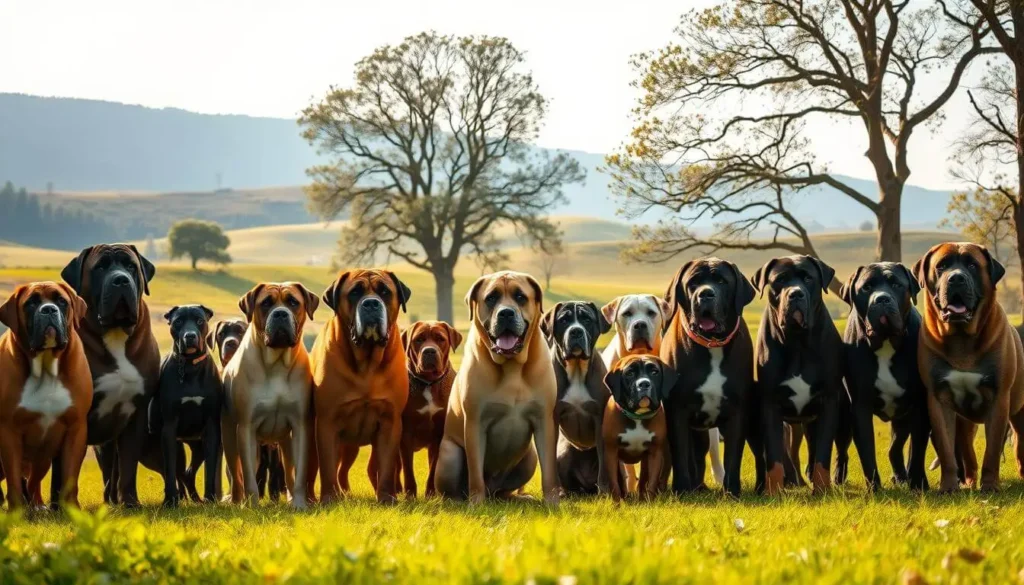
Key Takeaways
Table of Contents
- Large dog breeds are defined by their weight, usually 50 pounds or more.
- These dogs are often beloved as loyal companions and family members.
- Popular large dog breeds include Labrador Retrievers, German Shepherds, and Rottweilers.
- Many large breeds excel in roles such as working dogs and protectors.
- Statistics from the American Kennel Club highlight the most favored large breeds in America.
Introduction to Large Dog Breeds
Large breed dogs are known for their unique traits and needs. They weigh over 50 pounds and come in many breeds. These dogs are strong, loyal, and smart.
Each large dog has its own personality and energy level. This makes them interesting and diverse.
Large dogs have different characteristics. For example, Labradors are friendly and adaptable. German Shepherds are protective and hardworking. These differences mean owners must think about temperament and exercise needs.
Having a large dog can be very rewarding. But, it’s important to understand their needs and behaviors. Training and socialization are key to prevent accidents due to their size.
When picking a breed, think about how it fits your lifestyle. Consider your living situation and what you need from a pet.
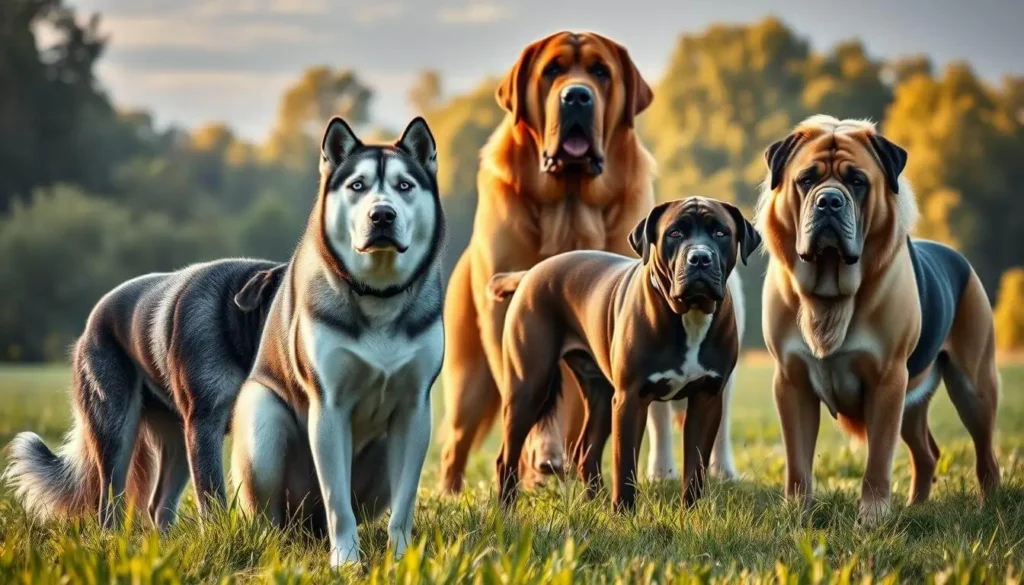
Benefits of Owning a Large Dog
Owning a large dog can greatly improve your life. They offer constant companionship and a sense of safety. These dogs form deep bonds with their families, showing remarkable loyalty.
Understanding these benefits helps you see how a large dog can change your daily life.
Companionship and Loyalty
Large dogs are known for their loyalty and strong emotional bonds. They provide comfort and support when needed. Their loyalty creates a special bond, making them more than pets.
Studies show that having a pet can improve mental health. This highlights the emotional benefits of having a loyal large dog.
Physical Presence and Protection
The presence of large dogs can keep families safe. Many breeds naturally protect their owners. This protective instinct gives owners confidence and safety.
These dogs offer both emotional and physical security. They are truly valuable companions.

Top Characteristics of Large Dog Breeds
Understanding large dogs is key. Their behavior and physical traits are different from small dogs. We’ll look at their temperament and health issues that owners should know.
Temperament and Behavior
Large dogs have various temperaments shaped by their upbringing. Early socialization is crucial for their adaptation. Some are protective, while others are friendly and outgoing.
Training is important to shape their behavior. It helps create a well-adjusted pet.
Physical Traits and Health Considerations
Large dogs have unique physical traits like size and coat types. Their size can lead to health issues like hip dysplasia and heart problems. It’s important to feed them right and take them to the vet regularly.

Grooming needs also vary. Some need regular grooming to avoid matting, while others are easier to care for. Knowing these details prepares you for the big responsibilities of owning a large dog.
The Most Popular Large Dog Breeds
Looking at popular large dog breeds, we see unique traits and personalities. Each breed is special, making them great for families and individuals. Let’s explore some of the most loved large dog breeds, known for their loyalty, smarts, and adaptability.
Labrador Retriever
The Labrador Retriever is a top pick among large dog breeds. They are friendly and full of energy, perfect for families. Labradors love people and need lots of exercise, fitting well in active homes.
They were bred to work, which makes them smart and easy to train. This adaptability is a big plus for owners.
German Shepherd
German Shepherds have a reputation for fearlessness and loyalty. They are great at various jobs, like service and police work. As one of the smartest breeds, they need regular training and socializing.
They form strong bonds with their families. Raised right, they can be loving and gentle.
Golden Retriever
Golden Retrievers are loved for their friendly and playful nature. They get along well with kids and other pets, making them ideal for families. Their history as hunting dogs means they need lots of activity and mental challenges.
This keeps them happy and healthy.
Rottweiler
Rottweilers are often misunderstood but are loyal and loving. They are strong and protective, making them good guard dogs. They can be amiable and well-behaved with the right socialization and training.
It’s important to understand their need for exercise and mental stimulation.
FAQ
What are the primary characteristics of large dog breeds?
Large dog breeds weigh 50 pounds or more. They have a strong presence. Their temperament, energy levels, and physical traits vary widely. It’s important to understand these characteristics before getting a large dog.
How much exercise do large dog breeds require?
Large dogs need a lot of exercise every day. This includes long walks, playtime, and mental stimulation. The exact amount depends on the breed, so research their energy levels.
Are large dog breeds good with children?
Many large dog breeds are great with kids. Breeds like the Labrador Retriever and Golden Retriever are friendly and protective. But, remember that each dog’s temperament and early socialization are crucial.
What are the common health issues for large dog breeds?
Large dogs may face health problems like hip dysplasia, arthritis, and heart conditions. Regular vet visits, a healthy diet, and enough exercise can help prevent these issues.
How can I pick a big dog breed that fits my lifestyle?
Think about your living situation, how active you are, and how much time you can spend on training and care. Look into each breed’s temperament, exercise needs, and grooming needs to find the best fit for your family.
What kind of training do large dog breeds need?
Large dogs need consistent training and socialization from a young age. Positive reinforcement works well. Many owners find obedience classes helpful in building a strong bond and a well-behaved pet.
Do large dog breeds require more food than smaller breeds?
Yes, larger dogs need more food because of their size and energy. Always follow the feeding guidelines for your breed and talk to your vet for personalized advice.
How can large dog breeds offer companionship and security?
Large dog breeds are loyal and protective, offering emotional support and security. Their presence reassures families, making them perfect companions for those seeking love and protection.

